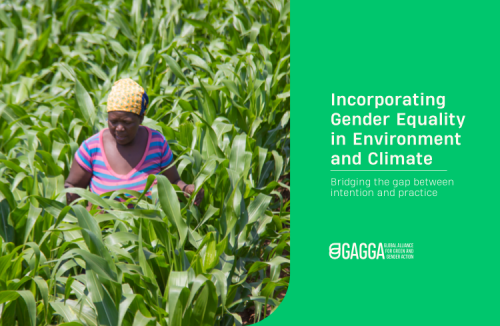Report: Incorporating Gender Equality in Environment and Climate
Government donors increasingly recognize that environmental and climate action must respect and promote gender equality and women’s rights. But how and to what extent is this recognition reflected in their policies and practices? To answer this question, in 2019, the Global Alliance for Green and Gender Action (GAGGA) commissioned a mapping of relevant policies, mechanisms, tools and funding channels of five government donors, all frontrunners in their support of gender equality and environmental and climate action in development cooperation. Then in January 2020, GAGGA, in collaboration with the Dutch Ministry of Foreign Affairs, organized a roundtable on “Gender and inclusiveness in international environmental and climate funding policies,” with these five government donors, amongst others, to delve further into the findings of the mapping.
This paper highlights the key findings from the mapping and roundtable dialogues, and offers some recommendations and resources for action by government donors to more effectively integrate and further strengthen gender equality in environmental and climate policies. As the United Nations Framework Convention on Climate Change (UNFCCC) has indicated, “strong political commitment, matched by adequate institutional support, resource allocation and gender expertise, is pivotal in ensuring the integration of gender-equality components within climate policies, projects and programs at the national and local/community levels.”

